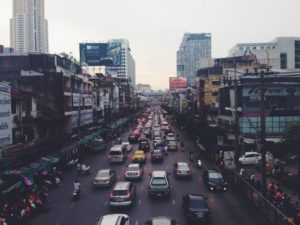The Sindh government in Pakistan has introduced a new policy requiring mandatory biometric verification for vehicle registrations and transfers across the province. Led by Sindh Excise Minister Sharjeel Inam Memon, the policy aims to enhance transparency and prevent fraudulent vehicle transactions.

Sindh is one of the four provinces of Pakistan, located in the southeastern part of the country, with Karachi as its capital and largest city. It is historically significant, and plays a vital role in Pakistan’s economic development due to its strategic position along the Arabian Sea, which makes Karachi a key port city and financial hub.
The new vehicle registration policy is being rolled out in three phases. The first phase, already in effect, mandates biometric verification for the registration of new vehicles. The second phase, starting November 1st, will extend this requirement to vehicle buyers. The final phase will require both buyers and sellers to undergo biometric verification during vehicle transfers.
The system allows citizens to complete verification at NADRA e-facilitation centers or district excise offices, and is part of broader efforts to modernize the Sindh Excise and Taxation Department. Memon emphasized that the policy will help curb illegal transfers and fraud in vehicle transactions.
At the national level, Pakistan has been an early and enthusiastic adopter of biometric technologies, implementing them on a national scale across various sectors. The country’s National Database and Registration Authority (NADRA) has established a comprehensive digital identity system, including the Computerized National Identity Card (CNIC) and contactless biometric verification services. The system has been widely integrated into the financial sector, with the State Bank of Pakistan setting ambitious goals for all financial institutions to adopt facial biometrics by the end of 2023.
The applications of biometric technology in Pakistan extend beyond banking and finance. The country has implemented these systems for voter and mobile registration, real estate transactions, welfare payment distribution, and crisis management during the COVID-19 pandemic.
Sources: Pakistan Today, APP
–
September 16, 2024 – by Ali Nassar-Smith







Follow Us